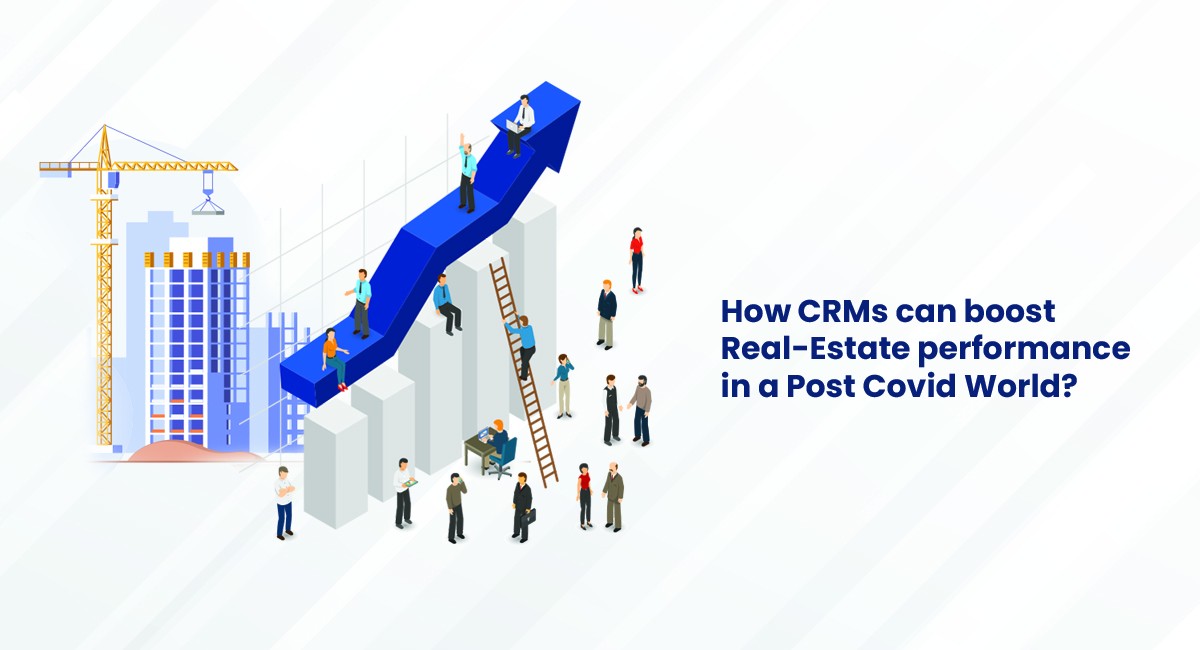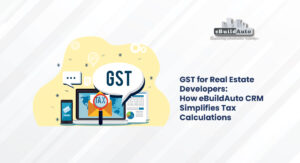In the wake of the Covid 19 pandemic, India’s real estate scenario has taken a definite turn for the better with a reported rise in sales of between 5% and 10 % in 2021, as per various industry sources. While uncertainty about employment and earnings may have prompted an earlier sluggishness in the market, the subsequent boost in sales is not due to sentiment alone.
Tech is helping this traditional sector open up in a big way. The benefits are not just for businesses, but also for their employees and, of course, the customer. The prime tech driver behind this improved efficiency is the real estate CRM
There is no doubt that the real estate sector, in general, was slower off the block in its adoption of technology solutions, as compared to other industries. But, the next generation of CRMs has permanently changed the game, bringing in greater efficiencies and trimming wasteful expenditure. Let’s take a look at how both businesses and customers have been impacted.
Table of Contents
ToggleReal Estate CRM Benefits for Businesses
Better Lead Development
Real estate players traditionally relied heavily on mass media to bring leads. Not only were these leads mostly unqualified; many fell between the crack of operational efficiencies. Real Estate CRMs now give businesses the ability to run personalized and trackable campaigns across a variety of digital media—a far more efficient and cost-effective way to generate qualified leads.

Real Estate CRM also provide a single source of truth so there can be no dissonance in what the customer is offered by respective sales persons. Another big advantage is that leads can be easily classified according to likelihood of closure. Site visits can be scheduled, follow-ups are easier, and reporting and analytics give business stakeholders a clear view of how well its marketing efforts and employees are performing.
Streamlined Processes
Two of the key efficiency drivers of Real Estate CRMs are their customisability and automation. Users can define parameters as per their business requirements and assign permissions based on employee hierarchies. Routine tasks can be automated, freeing up staff for more important work.
Higher Productivity
From easy creation and deployment of marketing communications to scheduling site visits and follow-ups to reminders about various pending tasks enables Real Estate CRMs to deliver a much higher and more consistent level of productivity.

Elimination of Unnecessary Expenses
In an ideal world, employees would only focus on tasks that actually impacted the bottom line and relegate low-level routine tasks to machines. This is exactly the scenario that Real Estate CRMs have made possible, reducing spending on unnecessary manpower and saving time and effort for more meaningful tasks.
Employee Benefits
Better Career Prospects
Real Estate CRMs have given employees the tools to raise their efficiencies. With no more need for low-level data entry operators working on individual Excel-type spreadsheets, employees now have a clear line of sight to positions that offer more responsibilities and remuneration. CRMs have created a better appreciation for the need for stronger and more responsive customer engagement, giving rise to new positions and giving employees a seat at the decision-making table.
Higher Efficiencies
Traditionally the various departments in a real estate business worked in isolation: marketing, sales, finance, and customer relations didn’t really share information and so were unable to take advantage of shared learnings. Real Estate CRMs have put an end to this, providing businesses with streamlined processes that work better and together. For instance, It has never been easier to create and deploy campaigns aimed at fulfilling focused objectives, using metrics that allow near-real-time adaptations to deliver the highest possible ROI.
WFH Modalities
Remote working has become the norm now, and since the best Real Estate CRMs are cloud-based, employees don’t need to spend time, effort, and petrol to travel to and from the office. Employees now only need access to a connected device to handle many of the tasks that would otherwise call for their physical presence. For business owners, this means they can monitor and access various areas of work from any location and make more insightful decisions.
Involvement in the Decision Making Process

Employees whose roles were once confined to entering data and completing low-level tasks like scheduling appointments, are now discovering the truth in the aphorism “knowledge is power”. Real Estate CRMs have given them a clearer view of how well the business is performing in terms of customer engagement and marketing, where the bottlenecks are, and where the whitespaces are. As a result, CRM managers—a role that didn’t even exist a decade ago—now are heavily involved in the decision-making process.
Customer Benefits
Personalized Offerings
Real Estate CRM provide a clearer picture of the business’s individual customers, allowing them to personalize communications as well as their offerings. For the end-user, this translates into shorter and more satisfying purchase journeys.
Greater Transparency
Thanks to Real Estate CRMs, customers now have a more direct channel to the developer. Other than promotions and offers, this gives them benefits like real-time views of the status of their construction, payment status, etc.
Higher Satisfaction Levels
Real Estate businesses that utilize Real Estate CRM software efficiently consistently report a significantly higher level of customer satisfaction. This is most likely the result of better engagement, personalization, responsive communication, and all-round transparency.

Final Words
It goes without saying that to deliver all these benefits, you have to choose the right CRM for your business. Increasing competition and a more mature, knowledgeable customer with clearer expectations have placed new challenges before real estate players. Real Estate CRMs like eBuildAuto, from RichTech IT are helping businesses raise performances, build dependable processes, and create enduring customer relationships.
Before you make a choice read our article, 10 things every real estate CRM should do. It will provide a clearer understanding of what to aim for.




